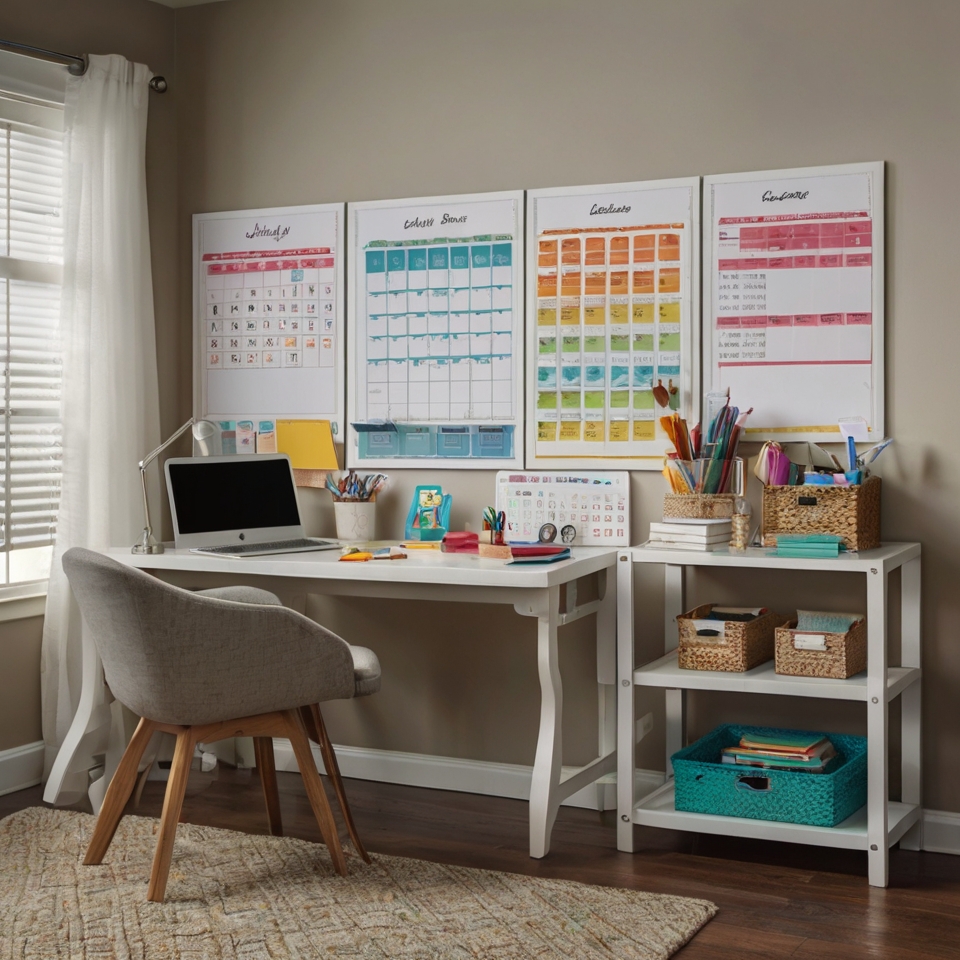Effective home management tips have evolved far beyond traditional housekeeping into a sophisticated discipline. Modern home management tips encompass strategic planning, resource optimization, and family wellness coordination. When you implement proven home management tips systematically, household tasks transform from overwhelming burdens into empowering systems.
Home management tips has evolved far beyond traditional housekeeping into a sophisticated discipline that encompasses strategic planning, resource optimization, and family wellness coordination. In today’s fast-paced world, some essential home management tips serves as the foundation for personal success, family harmony, and overall life satisfaction. When approached systematically, home management preventive care transforms from an overwhelming burden into an empowering system that enhances every aspect of organized living.
These systems enhance every aspect of organized living.
The Psychology Behind Effective Home Management Tips
Research in environmental psychology demonstrates that organized homes directly impact mental clarity, stress levels, and decision-making capabilities. When our physical spaces reflect order and intentionality, our minds follow suit. This phenomenon, known as “cognitive offloading,” allows our brains to focus on creative and meaningful tasks rather than constantly processing environmental chaos.
Effective home management creates what psychologists call “restorative environments “spaces that naturally replenish mental energy rather than depleting it. By implementing structured systems, families experience reduced decision fatigue, improved communication patterns, and enhanced emotional regulation. These benefits compound over time, creating upward spirals of family well-being and individual productivity.
Organized living directly impacts mental clarity and decision-making.

Creating Your Home Management Command Center
Every effectively managed home benefits from a centralized coordination hub. These essential home management tips focus on creating a physical or digital space that serves as the family’s organizational nerve center. Successful home management tips emphasize consolidating essential information, schedules, and systems into one accessible location.
Physical Command Center Design: Designate a specific wall or area near your home’s main entrance as your coordination hub. Install a large monthly calendar displaying all family activities, color coded by family member. Create a message board for important reminders, upcoming events, and family communications. Include key hooks or a basket system for essential items like keys, outgoing mail, and school permission slips.
Add a file system for incoming paperwork that requires action, using categories like “to file,” “to pay,” “to review,” and “to respond.” This prevents paper accumulation while ensuring nothing important gets lost. Include a supply station with pens, scissors, tape, and other frequently needed items to prevent constant searching.
Digital Integration: Complement your physical command center with digital tools that extend coordination beyond home walls. Use shared family calendar apps that send automatic reminders for appointments, task deadlines, and important dates. Cloud-based document storage keeps important files accessible from anywhere, crucial for emergency information, medical records, and important contacts.
Implement meal planning apps that generate shopping lists automatically based on selected recipes. These tools can track inventory, suggest recipes using available ingredients, and accommodate dietary restrictions. The time saved on meal planning and grocery shopping alone justifies the small learning curve.
Weekly Planning Rituals: Establish consistent weekly planning sessions, typically Sunday evenings, when families review the upcoming week together. During these 20 to 30 minute sessions, discuss each person’s schedule, identify potential conflicts, plan meals, and assign responsibilities. This proactive approach prevents surprises and ensures everyone feels prepared for the week ahead.
Use this time to review the previous week’s successes and challenges. What systems worked well? What caused stress or confusion? This regular reflection allows continuous improvement of home management strategies based on real experience rather than theoretical ideals.
Seasonal Deep Reviews: Quarterly, conduct more comprehensive evaluations of your home management systems. Assess whether current strategies still serve your family’s evolving needs. Children grow and develop new capabilities, work schedules shift, and family priorities change. Systems that worked brilliantly six months ago may need adjustment.
Use these reviews to purge outdated information from your command center, update emergency contact lists, refresh household inventory systems, and plan for upcoming seasonal transitions. This prevents gradual system degradation that leads to eventual organizational collapse.
Your command center supports organized living for the entire family.
Digital tools extend family coordination beyond home walls.
Smart strategic Family Coordination Resource Allocation
Effective family coordination requires sophisticated communication infrastructure, approaches to resource allocation that extend beyond financial budgeting. Time, energy, and attention represent equally valuable resources that demand careful management. Implement “resource mapping” by tracking how family members spend their non-work hours for one week. This data reveals patterns of inefficiency and opportunities for optimization.
Create “efficiency protocols” for recurring household challenges. Develop standardized approaches for managing seasonal clothing transitions, holiday preparations, and emergency situations. These protocols eliminate the mental energy required to reinvent solutions repeatedly while ensuring consistent, high-quality outcomes.
Read more: Effective Home Management Tips for a Stress-Free LifeAccording to a HGTV article on home routines, setting small daily goals can reduce stress.
According to website: Better Homes & Gardens, setting weekly household goals can reduce stress significantly
Technology-Based Home Management Tips for Seamless Daily Living
Contemporary home management leverages technology to automate routine decisions and streamline coordination. Smart home systems can manage energy consumption, security monitoring, and environmental controls without daily intervention. Digital family calendars synchronized across devices ensure everyone stays informed about schedules and responsibilities.
Implement “digital command centers” using shared applications for grocery lists, task assignments, and family communications. These tools create transparency and accountability while reducing the mental load on primary home managers. Voice-activated assistants can handle routine reminders, timer management, and information retrieval, freeing human attention for relationship building and creative problem-solving.
Financial Management as Home Management Foundation
Effective home management inextricably links to sound financial stewardship. Household finances represent a critical resource requiring systematic management alongside time and energy.
Comprehensive Budget Systems: Move beyond basic income and expense tracking to implement zero-based budgeting where every dollar receives a specific assignment. This approach provides clarity about resource allocation and reveals spending patterns that may not align with stated priorities. Utilize budgeting apps that automatically categorize transactions, providing real-time visibility into spending across categories.
Create sinking funds for predictable irregular expenses like annual insurance premiums, holiday gifts, and home maintenance. Monthly contributions to these funds eliminate the financial stress of “unexpected” expenses that are actually entirely predictable. This approach transforms crisis management into proactive planning.
Home Maintenance Financial Planning: Develop a comprehensive home maintenance schedule paired with associated costs. Research suggests that annual home maintenance should equal one to four percent of home value, depending on age and condition. Without systematic planning, these costs arrive as unwelcome surprises that strain budgets and relationships.
Create a prioritized maintenance list categorized by urgency and consequence. Critical systems like HVAC, plumbing, and roofing demand immediate attention when issues arise. Cosmetic concerns can wait for budget availability. This framework enables rational decision making during stressful maintenance situations.
Grocery and Household Expense Optimization: Food and household supplies typically represent families’ third-largest expense category after housing and transportation. Systematic approaches to these purchases yield significant savings without requiring extreme couponing or bargain hunting.
Track grocery spending for one month without making changes, establishing your baseline. Then implement meal planning based on sales cycles, strategic bulk buying for non-perishable staples, and waste reduction strategies. Most families reduce food costs by 20 to 30 percent through these simple optimizations.
Emergency Fund Development: Home management systems fail under financial stress. Build an emergency fund covering three to six months of essential expenses, providing a financial buffer that allows calm decision making during crises. Start small if necessary, even $25 weekly contributions compound to over $1,300 annually.
This fund prevents minor emergencies like appliance failures or medical expenses from derailing your entire household management system. Financial security creates mental bandwidth for effective planning and execution of other home management priorities.
Family Financial Education: Involve age-appropriate family members in financial discussions and decisions. Children who understand family financial realities develop realistic expectations and valuable money management skills. Create transparency around how income gets allocated, what tradeoffs families face, and how financial decisions support family values.
This education prevents the entitled mindset that emerges when children believe resources are unlimited. It also prepares them for independent adulthood with practical financial management skills their formal education often neglects.
Among the most overlooked home management tips is the integration of financial planning with daily household operations. Effective home management tips recognize that household finances represent a critical resource requiring systematic oversight.
Advanced Home Management Tips for Inventory Control
Professional-grade inventory management principles can revolutionize household organization. Apply “just-in-time” inventory concepts to reduce storage needs while ensuring necessary items remain available. Create seasonal rotation schedules for clothing, decorations, and sporting equipment to maximize space utilization.
Develop “consumption tracking” systems for household supplies, food items, and personal care products. This data enables precise purchasing decisions that minimize waste while preventing stockouts. Digital apps can track expiration dates, usage patterns, and replacement schedules, transforming guesswork into data-driven management.
Meal Planning and Kitchen Management Excellence
Kitchen management represents one of home management’s most time-consuming yet critically important domains. Systematic approaches to meal planning, grocery shopping, and food preparation dramatically reduce daily stress while improving nutrition and reducing costs.
Strategic Meal Planning Frameworks: Move beyond random weekly planning to implement rotating meal schedules that balance variety with efficiency. Create a master list of 20 to 30 family-approved meals categorized by preparation time, cost, and nutritional profile. Use this database to construct weekly menus that meet your family’s practical constraints.
Implement theme nights that simplify planning while maintaining variety. Meatless Monday, Taco Tuesday, Crock-Pot Wednesday, and leftover remix nights provide structure without monotony. This approach reduces decision fatigue while ensuring balanced nutrition across the week.
Batch Cooking and Preparation Systems: Dedicate two to three hours weekly to batch preparation of meal components rather than complete meals. Cook large quantities of grains, proteins, and roasted vegetables that can be combined differently throughout the week. This modular approach provides variety without repetitive cooking.
Prepare breakfast components on Sunday for the entire week, overnight oats in individual jars, breakfast burritos that freeze and reheat beautifully, or muffins that grab easily during rushed mornings. This small investment eliminates morning chaos and ensures family members start days with proper nutrition.
Grocery Shopping Optimization: Transform shopping from a time-consuming chore into an efficient systematic process. Create master shopping lists organized by store layout, preventing backtracking and forgotten items. Many grocery apps now support this organization, allowing quick list building based on planned meals.
Establish consistent shopping days and times, ideally midweek mornings when stores are less crowded. This predictability allows mental preparation and prevents last-minute stressful trips. Consider grocery delivery or pickup services if the time saved justifies the cost, many families find these services invaluable.
Kitchen Organization for Efficiency: Apply professional kitchen organization principles to home kitchens. Store items at their point of first use, coffee supplies near the coffee maker, cooking oils near the stove, dishes near the dishwasher. This reduces unnecessary movement and mental load during meal preparation.
Implement the “one in, one out” rule for pantry items to prevent accumulation and expired food waste. Regular pantry inventories, monthly or quarterly, prevent duplicate purchases and ensure rotation of aging items. Clear containers and labels eliminate guessing games about contents and freshness.
Family Meal Culture Development: Beyond logistics, meal management includes cultivating family meal culture that supports connection and well-being. Establish device-free family dinners at least several times weekly, creating protected time for conversation and relationship building.
Involve children in meal planning and preparation at age-appropriate levels. Young children can wash vegetables or set tables. Older children can learn actual cooking skills while contributing to family functioning. This participation develops life skills while distributing household labor more equitably.
Kitchen organization represents one of the most impactful home management tips for reducing daily stress. Strategic home management tips for meal planning dramatically improve nutrition while reducing costs.
Family Coordination and Communication Systems

Effective home management requires sophisticated communication infrastructure that accommodates different learning styles, schedules, and preferences. Establish “family coordination protocols” that include regular check-ins, decision-making processes, and conflict resolution procedures. These systems ensure all family members feel heard while maintaining operational efficiency.
Create “responsibility matrices” that clearly define roles, expectations, and accountability measures for each family member. Age-appropriate task assignments should include both routine responsibilities and special projects that develop life skills. Regular evaluation and adjustment of these assignments ensure continued engagement and skill development.
Seasonal Home Management Tips and Lifecycle Adaptations
Home management systems must evolve with changing family needs and seasonal requirements. Develop “transition protocols” for major life changes such as new family members, career changes, or children reaching different developmental stages. These protocols provide stability during periods of change while accommodating new requirements.
Implement “seasonal management cycles” that prepare homes for changing weather, holidays, and activity patterns. These cycles include deep cleaning schedules, wardrobe transitions, equipment maintenance, and space reorganization. Proactive seasonal management prevents crisis situations while optimizing comfort and functionality.
Preventive care during seasonal transitions prevents costly emergency repairs.
Read more: Effective Home Management Tips for a Stress-Free Life“See more practical ideas in our post How to Keep Your Home Clean and Organized in Just 15 Minutes Daily.”
Wellness Integration and Preventive Care
Modern home management prioritizes family wellness through environmental design and routine optimization. Create “wellness zones” within the home that support physical activity, mental health, and family bonding. These might include meditation spaces, exercise areas, or dedicated zones for creative activities.
Develop preventive care schedules for both home maintenance and family health. Regular systems maintenance, health check-ups, and equipment servicing prevent expensive emergency situations while maintaining optimal living conditions. These schedules should integrate with family calendars to ensure consistent execution.

Sustaining Home Management Systems Long-Term
Creating effective home management systems represents just the beginning. Sustaining these systems through life’s inevitable changes requires intentionality and adaptation.
Building Flexibility Into Systems: Rigid systems inevitably fail when life circumstances change. Build flexibility into your management approaches by creating tiered systems with minimum, standard, and optimal execution levels. During normal weeks, operate at standard level. During stressful periods, drop to minimum viable routines without guilt. During calm periods, enjoy optimal execution.
This tiered approach prevents the all-or-nothing thinking that causes complete system abandonment during challenges. You always have a version of your system that matches current capacity.
Regular System Audits: Schedule quarterly reviews of all major home management systems. What’s working well? What causes frustration? What’s changed about family needs or circumstances? These audits prevent gradual drift toward ineffective habits while ensuring systems evolve with your family.
During audits, celebrate successes and acknowledge improvements. Home management work often goes unnoticed, leading to burnout and resentment. Intentional recognition of both effort and results sustains motivation and engagement.
Teaching Systems to Family Members: As children mature, gradually transfer home management responsibilities and knowledge. Teach the “why” behind systems, not just the “how.” Understanding purposes helps children adapt practices to their future independent lives rather than simply following rote procedures.
Create written documentation of key systems, recipes, cleaning routines, maintenance schedules. This knowledge transfer prevents single points of failure where only one person understands critical household operations.
Adapting to Life Stage Transitions: Major life transitions, new babies, children starting school, career changes, aging parents, require systematic home management adjustments. Anticipate these transitions and proactively adjust systems rather than waiting for crisis.
When transitions occur, grant yourself permission to simplify non-critical systems temporarily. Not every aspect of home management deserves equal attention during all life seasons. Protect core systems while releasing perfection in areas that matter less during specific periods.
CONCLUSION:
Effective home management is an investment in your family’s well-being and quality of life. By implementing these advanced strategies, you create an environment that not only functions smoothly but also supports personal growth, healthy relationships, and family goals.
Remember that perfection isn’t the objective consistency and adaptability are the keys to long-term success in home management. Start with one or two strategies that resonate most with your current needs, and gradually build a comprehensive system that serves your family’s unique lifestyle.
Read more: Effective Home Management Tips for a Stress-Free LifeLooking for comprehensive guidance on caring for your baby? Our book ‘How to Care for Children: From Birth to Age 2’ combines professional nanny experience with evidence based child development research. Written by Kelly and Peter, this guide provides clear, reliable advice rooted in real world childcare. Available in English, Spanish, and Portuguese on Amazon.
Click the link below your preferred language to get your copy!

1. What are the most important home management tips for busy families?
The most critical home management tips for busy families focus on creating systems rather than relying on willpower. Proven home management tips establish consistent routines for morning and evening transitions, implement meal theme nights to eliminate daily dinner decisions, and create designated landing zones for keys, bags, and frequently used items.
Digital family calendars synchronized across devices ensure everyone stays informed about schedules and responsibilities. The key is starting with one or two systems, allowing them to become automatic before adding more complexity.
2. How can I get my family members to participate in home management tasks?
Successful family participation requires clear communication, age-appropriate task assignments, and positive reinforcement rather than criticism. Create visual responsibility charts that clearly define expectations for each family member. Hold brief weekly family meetings to discuss upcoming schedules, adjust task assignments, and celebrate completed responsibilities.
Make tasks easier by providing proper tools and clear instructions. Research shows that children who participate in household management develop stronger life skills, time management abilities, and sense of family contribution.
3. What’s the best way to start implementing home management systems when feeling overwhelmed?
When overwhelmed, resist the urge to overhaul everything simultaneously. Instead, identify your single biggest pain point, whether that’s chaotic mornings, dinner stress, or clutter accumulation, and address only that issue first. Spend one week observing the problem without trying to fix it, documenting when it occurs and what triggers it.
Then implement one simple solution and commit to it for 30 days before evaluating effectiveness. This focused approach prevents the paralysis that comes from trying to change everything at once.
4. How much time should I dedicate to home management activities daily?
Effective home management requires consistent small investments rather than occasional marathon sessions. Most families find that 15 to 20 minutes of focused daily maintenance, combined with one 60 to 90 minute weekly planning and deep cleaning session, maintains household order effectively. The daily investment includes quick resets, meal preparation, and coordination activities.
The weekly session handles planning, shopping, deeper cleaning, and system evaluation. This approach prevents backlog accumulation while remaining sustainable long term.
5. What are the biggest mistakes people make with home management?
Common home management mistakes include pursuing perfection rather than consistency, implementing systems that don’t match your family’s natural rhythms, and failing to adapt systems as family needs change. Many people also make the mistake of not involving all family members in both planning and execution, creating unsustainable burden on one person.
Another frequent error is neglecting to track what actually works, leading to repeated trial and error rather than data-driven improvements. Finally, many families abandon effective systems during busy periods when they’re needed most, rather than simplifying systems to match available energy.
6. How can technology help with home management without adding complexity?
Technology aids home management most effectively when it eliminates decisions and automates routine tasks. Shared digital calendars prevent scheduling conflicts and missed appointments. Grocery apps with recurring item lists eliminate the mental load of remembering household staples. Smart home devices can automate lighting, temperature control, and security monitoring.
However, technology becomes counterproductive when it requires more management than the tasks it replaces. Choose tools that integrate with existing habits and truly save time rather than adding another system to manage.
7. How do I maintain home management systems during stressful periods or life transitions?
During high-stress periods, simplify systems to their absolute essentials rather than abandoning them entirely. Identify your non-negotiable minimum viable routines, the absolute bare minimum that prevents complete chaos. This might be ensuring clean clothes, basic meals, and essential coordination.
Release guilt about perfect execution and focus solely on maintaining core systems. Build recovery protocols for after stressful periods, step-by-step plans for gradually reintroducing suspended routines. This approach prevents the complete system collapse that often follows major life changes or stressful events.
Regular preventive care reduces emergency maintenance costs significantly.
Organized living requires consistent small investments rather than occasional marathons.
Want a complete baby care guide?
Get our FREE checklist sent directly to your inbox - covering everything from birth to age 2, including daily routines, safety guidelines, and developmental milestones.
- ✅ Birth to 3 months essentials
- ✅ 4-12 months routines & alerts
- ✅ 1-2 years development & safety
Enter your email to receive instant access to the PDF




